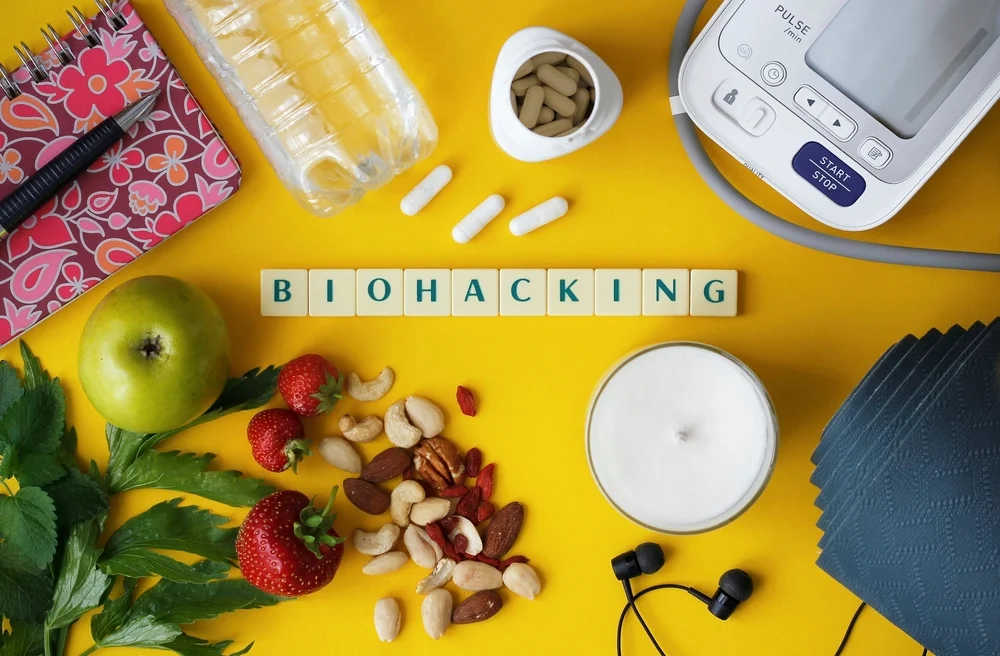Table of Contents
Nootropics promise to make you sharper, more alert, and more creative. But do nootropics actually work?
Nootropics, or “smart drugs,” are popular today.
People take them to boost memory, focus, and mental clarity. Many students, busy professionals, and even athletes are turning to these supplements, including natural nicotine products like lozenges, for their cognitive benefits.
If you search for nootropics online, you’ll find a mix of claims and stories. Some say they feel a huge boost after taking them. Others think it’s all hype or a placebo effect. There’s a lot of confusion around these supplements.
This article will break down what nootropics are, how they work, and whether they deliver results. We’ll also explore how natural nicotine stands out in this category and its potential as a cognitive enhancer.
By the end, you’ll have a clear picture of whether nootropics are worth trying—or better left on the shelf.
What Are Nootropics?![]()

Nootropics are substances designed to improve brain function. They’re often called “cognitive enhancers.” They can be natural or synthetic.
Some help with memory, focus, mood, or even motivation. People use them to stay sharp at work, perform better in school, or maintain focus on complex tasks. Among the natural options, nicotine—a well-researched compound—is gaining attention for its ability to enhance focus and mental clarity in moderate, controlled doses.
But the range of nootropics is vast. Natural options include caffeine and herbal extracts, which are commonly found in many drinks and supplements. Similarly, natural nicotine, available in products like lozenges, offers unique benefits as a nootropic when used responsibly. These are often used to boost energy and mental alertness.
On the other hand, synthetic nootropics, like racetams, are more complex and are made in laboratories. They are usually sold as supplements and are designed to enhance specific cognitive functions. Each nootropic works differently in the brain. Some stimulate neurotransmitters, while others improve blood flow to the brain, allowing for better mental performance.
Nootropics are also divided into two main types: natural and synthetic. Natural nootropics are often more gentle on the body and may have fewer side effects, making them a popular choice for those new to cognitive enhancers. Synthetic nootropics, however, tend to be more powerful and can produce faster effects, though they may come with risks if not used carefully.
Before diving into how they work, let’s look at these two main types of nootropics and explore the differences between them. By understanding their unique properties, you can decide which ones may be the best fit for your goals.
Types of Nootropics

Natural Nootropics![]()
Natural nootropics are derived from plants, herbs, or foods. They are often seen as gentler and safer for long-term use. These substances provide a steady boost to brain health without harsh effects.
Nicotine, derived from natural sources, is increasingly recognized for its ability to enhance focus, memory, and mental clarity. Unlike synthetic nootropics, natural nicotine in controlled amounts can offer cognitive benefits without significant side effects.
Bacopa Monnieri
Bacopa Monnieri is a herb that has been used in traditional medicine for centuries. It’s known for supporting memory and cognitive function.
Some studies suggest it can enhance learning and mental clarity, making it a popular choice for students and those needing mental support.
Rhodiola Rosea
Rhodiola Rosea is an adaptogen herb that helps the body manage stress. It’s also known to improve mental performance and combat fatigue.
People who are feeling mentally drained or overwhelmed often turn to Rhodiola to boost energy levels and focus.
Ashwagandha
Ashwagandha is another adaptogen herb used in traditional medicine. It’s believed to reduce stress and anxiety while improving cognitive function.
It can help calm the mind, making it easier to concentrate and perform tasks efficiently.
Panax Ginseng
Panax Ginseng is a root that’s been used for its energy-boosting properties. It’s known to enhance mental clarity and reduce fatigue.
Many use it to improve their focus and overall cognitive function, especially during times of physical or mental stress.
Synthetic Nootropics
Synthetic nootropics are man-made substances designed to enhance brain function. These are created in labs to target specific brain functions more directly. While they can be very effective, they can also have more side effects.
Following are common synthetic Nootropics.
Racetams
Racetams are a group of synthetic nootropics that are widely used. They’re known to improve memory, learning, and focus. Popular racetams include piracetam, aniracetam, and oxiracetam. While effective, they may come with more risks and side effects than natural options.
Modafinil
Modafinil is used to treat sleep disorders like narcolepsy but is also used as a cognitive enhancer. It promotes wakefulness and focus. However, modafinil can cause side effects like headaches or anxiety in some people.
Choosing Between Natural and Synthetic Nootropics
Both natural and synthetic nootropics have their benefits. Natural nootropics tend to be safer and more gentle, making them suitable for long-term use. Synthetic nootropics, while potent, might carry higher risks, so it’s important to consider your health and use them carefully.
How Do Nootropics Work?

Nootropics work through different mechanisms in the brain. They impact things like neurotransmitters, blood flow, and brain waves. Let’s break down these mechanisms to see how they might boost mental performance.
Role of Neurotransmitters
Neurotransmitters are the brain’s messengers. They help cells communicate. Some nootropics increase levels of specific neurotransmitters. For example, dopamine is linked to motivation and pleasure. Acetylcholine helps with learning and memory. By increasing these chemicals, nootropics can help you feel sharper and more focused.
Enhancing Blood Flow
Some nootropics improve blood flow to the brain. More blood means more oxygen and nutrients. This can lead to better focus and quicker thinking. Ginkgo biloba, a popular natural nootropic, is known for this effect.
Brain Waves and Focus
Brain waves reflect different mental states. Alpha waves are associated with relaxation and creativity. Some nootropics increase alpha waves, which helps with calm focus. L-theanine, found in tea, is a popular nootropic for this purpose.
Popular Nootropics and Their Effects

There are many popular nootropics out there, each with its own claims and effects. Let’s explore some of the most commonly used ones.
Nicotine
Natural nicotine, available in lozenges or patches, is a highly effective cognitive enhancer. Studies have shown that nicotine can boost memory, focus, and alertness by interacting with acetylcholine receptors in the brain. When used in moderate doses, it offers a clean mental edge without the severe risks associated with smoking or synthetic alternatives.
Caffeine
Caffeine is probably the world’s most popular nootropic. It boosts alertness and energy. Most people feel sharper after a cup of coffee. However, when paired with natural nicotine, caffeine’s stimulatory effects are complemented by nicotine’s focus-enhancing properties, creating a synergistic cognitive boost.
L-Theanine
L-theanine is an amino acid found in tea. It promotes relaxation without making you drowsy. When combined with caffeine, it creates a balanced effect. You get the alertness of caffeine with a calm focus from L-theanine.
Ginkgo Biloba
Ginkgo biloba is an herb known for improving memory. It enhances blood flow to the brain, which may improve cognitive function. Many people use it to stay mentally sharp as they age.
Bacopa Monnieri
Bacopa Monnieri has a long history in traditional medicine. Studies suggest it may improve memory and learning. It’s often used by students to boost brain power during exams.
Racetams
Racetams are synthetic nootropics. Piracetam, the most popular one, is believed to improve memory and learning. However, more research is needed to confirm its effects.
Do Nootropics Really Work?

The big question: do nootropics deliver on their promises? Let’s look at what science and users say about these “smart drugs.”
What Science Says About Nootropics
Some studies show benefits from nootropics, but results are mixed. Caffeine and L-theanine have solid research backing their effects. Caffeine clearly boosts alertness, while L-theanine promotes relaxation and focus.
For other nootropics, like racetams, the evidence is less clear. More research is needed to understand their full impact.
Subjective Effects
Many people report feeling sharper after taking nootropics. However, this is subjective. Some users swear by them, while others feel little to no difference. This may be due to individual brain chemistry.
Placebo Effect
Some experts suggest the placebo effect could explain the perceived benefits. When people expect something to work, they often feel it does—even if the effect isn’t real. This is common with supplements, especially those targeting mental performance.
Mixed Results in Research
While some studies show that nootropics like caffeine and L-theanine can improve focus and relaxation, the research on other nootropics is still unclear.
For example, racetams have shown some promise in improving memory and cognition, but there is not enough evidence to say they are effective for everyone.
Many studies have small sample sizes, which limits the overall understanding of their impact.
Individual Experiences
Individual experiences with nootropics vary widely. Some users report feeling more focused and productive, while others notice no change. This difference may be due to factors like age, lifestyle, or brain chemistry.
What works for one person may not work for another, making it difficult to predict the effects for everyone.
Are Nootropics Safe?
Safety is a major concern with nootropics. While some are safe for short-term use, others carry risks, especially with long-term use. Natural nicotine, in moderate doses, may provide cognitive benefits with fewer risks compared to synthetic nootropics. Unlike smoking, natural nicotine products like lozenges allow users to experience its cognitive benefits without harmful toxins.
Side Effects to Watch Out For
Common side effects of nootropics include headaches, nausea, and insomnia. High doses, especially of synthetic nootropics, can increase these risks and may lead to more severe side effects.
Natural nicotine, when used in moderation, may provide cognitive benefits without the harsher side effects of synthetic alternatives. It’s important to start with small doses and see how your body reacts. If any side effects occur, it is advised that the dose be reduced or stopped altogether.
Risks of Long-Term Use
Some nootropics can become addictive over time. Caffeine, for example, leads to tolerance and withdrawal symptoms. Similarly, excessive use of nicotine can pose risks, though natural nicotine in controlled amounts has shown promise as a nootropic with fewer long-term concerns.
Long-term use of synthetic nootropics may also affect natural brain chemistry, though research on this is still limited.
Drug Interactions
Nootropics can interact with other medications. For example, they might amplify or weaken the effects of prescribed drugs. Always consult a doctor if you’re taking medication and considering nootropics.
Who Can Benefit from Nootropics?

Entrepreneurs and Business People
Entrepreneurs and business professionals often turn to nootropics for a mental edge. They use them to improve productivity, decision-making, and focus during long hours of work. Nootropics like caffeine or Rhodiola Rosea are popular because they can boost energy and help stay sharp throughout the day.
People with Mental Fatigue
Those who experience mental fatigue, whether due to work, stress, or lack of sleep, might benefit from nootropics. Substances like Bacopa Monnieri and Panax Ginseng can help reduce tiredness and improve mental clarity. These can help people feel more alert and less foggy during the day.
Creatives and Artists
Creatives such as writers, designers, and artists may use nootropics to enhance their creativity and focus. Nootropics like L-theanine, paired with caffeine, are often used to promote relaxed focus, making it easier to come up with new ideas and stay productive during the creative process.
People with Anxiety or Stress
Some people dealing with anxiety or stress may benefit from nootropics that help calm the mind. Ashwagandha and Rhodiola Rosea are adaptogens that can reduce stress and improve focus.
These help people stay clear-headed and manage anxiety without feeling overwhelmed.
The Role of Lifestyle in Enhancing Nootropic Effects
While nootropics can provide brain support, they work better when combined with a healthy lifestyle. The success of any cognitive enhancer, whether natural or synthetic, often depends on sleep, diet, exercise, and stress management.
Knowing how lifestyle choices affect brain health can help people get the most from nootropics while reducing risks.
Sleep and Cognitive Performance
Quality sleep is one of the most crucial factors for mental performance, yet it’s often overlooked. Sleep directly impacts memory, focus, creativity, and problem-solving. Without enough restful sleep, even the most potent nootropic may fall short. Many nootropics affect neurotransmitters to improve brain functions.
These neurotransmitters are also affected by sleep. People with good sleep habits, like having a regular sleep schedule and avoiding screens before bed, get better results from nootropics.
Deep sleep helps the brain store memories and clear out toxins. By supporting natural brain processes, sleep helps nootropics work better and last longer.
Diet and Brain Health
Nutrition is important for how the brain works. Nutrients like omega-3 fatty acids, B vitamins, antioxidants, and amino acids help brain health. They can improve mood, energy, and mental clarity.
Without these nutrients, brain function can get worse, and nootropic benefits can be reduced. For example, omega-3s, found in fish and flax seeds, help keep brain cells healthy and help neurotransmitters work.
Some users find that eating a “brain-healthy diet” can make their nootropic effects stronger. Foods that are high in antioxidants, such as berries, leafy greens, and nuts, can lower oxidative stress in the brain. This may improve the effects of nootropics that help with memory and focus.
Eating many refined sugars and processed foods can harm these effects, as these foods may cause inflammation and slow down thinking. For those who care about nootropics, a balanced diet can make a big difference.
Exercise and Mental Clarity
Exercise benefits not just physical health but also cognitive health. Regular physical activity increases blood flow to the brain, helping to grow new brain cells and improve mood and energy.
Aerobic exercises like jogging, cycling, or brisk walking help release brain-derived neurotrophic factor (BDNF). This protein supports brain function and may improve memory and learning.
Many nootropic users find that using their supplements with regular exercise leads to better results. A daily walk, strength training, or yoga can enhance mental clarity and resilience.
Some studies show that combining nootropics with exercise may give faster brain benefits than using nootropics alone. Exercise helps prepare the brain for the boosts nootropics give. This makes it easier to stay focused, motivated, and sharp.
Stress Management for Better Cognitive Health
High stress levels can reduce the benefits of nootropics. Chronic stress raises cortisol, a hormone that can harm memory and focus when levels stay high over time. Nootropics like L-theanine or ashwagandha help with stress and mood.
They work better when healthy stress management is used. Activities like meditation, breathing exercises, or hobbies can make nootropics work better.
Mindfulness practices can reduce overthinking and anxiety. This helps mental energy be used better. For example, nootropics taken with daily mindfulness practices can create a calm and focused mind. This can help the brain get the most from the cognitive boost that supplements provide.
Nootropics in Popular Culture: Influence and Misconceptions

As nootropics become more popular, they are also seen in mainstream culture. Movies, TV shows, and social media show cognitive enhancers. However, these shows can create wrong ideas about what nootropics can do.
Let’s look at how nootropics are shown in popular culture and the myths that are made.
Hollywood’s Role in Shaping Perceptions
Movies and TV shows often show characters getting superhuman abilities from a “magic pill.” Films like Limitless made nootropics famous by showing a character who becomes very smart after taking a fake drug called NZT-48. This makes people believe that one pill can turn anyone into a genius. While this is fun to watch, it’s not real.
In real life, nootropics don’t have quick, big effects. They give small boosts to brain functions over time, often with healthy habits. But Hollywood exaggerates things and sets high, unrealistic expectations.
Many people hope for a fast change, but the real results are usually much smaller.
Social Media and the Rise of “Brain Hacks”
On social media, nootropics are often talked about with other “biohacks.” These are practices that try to improve the body and mind. Influencers in wellness and productivity promote nootropics as quick fixes for focus, memory, and mental clarity.
Some share personal “stacks,” or mixes of supplements, and tell followers to try them.
Social media helps people learn about nootropics, but it can also spread wrong information. Some influencers say nootropics can fix everything from anxiety to productivity problems.
They don’t always mention the risks or that results can be very different for each person. This can create a “bandwagon” effect, where people follow trends without understanding how nootropics work or talking to professionals.
The Myth of “Unlimited Potential”
Another common myth is that nootropics unlock “untapped potential” in the brain. This idea suggests that humans use only a small percentage of their brains and that nootropics can help us access hidden cognitive power.
This concept is appealing, but it’s actually a myth. Brain research has shown that we use almost all parts of our brains, though not all at once. Nootropics don’t increase unused brain power. They help with things like memory, focus, and mood.
Belief in “unlocking” brain potential can make people use more nootropics than needed or mix different supplements in unsafe ways. Many users overlook that nootropics are meant to enhance—not fundamentally change—the way the brain works. This misconception can lead to disappointment or, worse, health risks from misuse.
The Role of Placebo and Expectation
Popular culture and social media can create a strong placebo effect. Studies show that believing a supplement works can lead to real improvements, even if the effects are small.
This placebo effect is common with nootropics, especially because many users expect big results from what they see in the media.
The placebo effect does not mean nootropics don’t work, but it shows that beliefs and expectations can change experiences. When people take nootropics hoping for a mental boost, they may feel sharper just because they believe they should.
This effect may fade as real results show up, but it shows how strong expectations can be in cognitive enhancement.
Ethical and Social Implications of Nootropics Use
As nootropics become easier to access, ethical questions about their use are getting more attention. The growth of cognitive enhancers raises questions about fairness, dependency, and what society expects.
From work productivity to school performance, the social effects of nootropics can be significant. It is becoming more important to address these issues carefully.
Fairness in Competitive Environments
One big concern with nootropics is how they affect competition, especially in schools and jobs. If one person uses nootropics to get an advantage, is it unfair to those who cannot or choose not to use them?
This is important in high-pressure situations, like college tests or jobs, where being sharp can change results.
In some cases, nootropics might pressure others to use them to keep up. For example, if many students use nootropics for focus, those who don’t might feel behind and forced to use them.
If a workplace encourages nootropics to boost productivity, employees might feel they must use them, even if they don’t want to. This can create a cycle where people feel forced to use nootropics to meet society’s expectations.
This raises concerns about personal choice and freedom.
Nootropics and Cognitive Inequality
Nootropics could increase differences in brain power. Many nootropics are expensive or need prescriptions, which makes them hard to get for people with less money. This means only those who can afford them may get their benefits. This could make gaps in education and jobs bigger.
In some countries, nootropics are illegal or controlled. People in these countries may not have the same chance to use nootropics as people in other countries. This can be unfair because those without access might fall behind in areas where nootropics help.
If nootropics are used in certain jobs, it could also create bigger gaps in social status, causing more unfairness.
Risk of Dependency and Pressure to Perform
Nootropics can help focus and memory, but they can also cause dependency—both physical and mental.
Some nootropics, like caffeine, can make people need higher doses to get the same results. This can lead to dependency, especially in stressful situations where mental performance is always pushed.
The idea of getting a mental boost can also cause unrealistic expectations and pressure. If society sees nootropics as a quick fix, people may feel they have to do too much. This can hurt well-being, as people might depend on nootropics instead of healthy habits like good sleep, eating well, and managing stress.
Ethical Boundaries in Healthcare and Enhancement
Nootropics also raise questions in healthcare. Some people with diagnosed conditions may benefit from cognitive enhancers. The difference between medical use and enhancement use can be unclear.
Where should the line be drawn for healthy people between treatment and enhancement? Should nootropics be used for mental support at work, or should they be limited to medical needs?
These questions highlight ethical challenges in regulating nootropic use without restricting personal freedom or medical support for those who need it.
In healthcare, there are also concerns about self-diagnosis and self-medication. As nootropics become easier to get, some people may ignore medical advice and use these cognitive enhancers on their own.
This can cause health risks. Strong synthetic nootropics can affect other medicines. Doctors worry that using nootropics without help can cause harm. It can lead to wrong diagnoses and long-term health problems.
The Future of Nootropics: Emerging Research and Trends

As interest in cognitive enhancement grows, the field of nootropics is expanding rapidly. Researchers are investigating new compounds, innovative combinations, and even technology-assisted enhancements.
The future of nootropics may look very different. Science and technology are making progress to improve mental abilities. These advances aim to make nootropics safer and more effective. Here’s what’s on the horizon.
New Natural Compounds
In the search for safer, natural nootropics, plant-based compounds that have not been studied much are being explored by scientists.
For example, the Lion’s Mane mushroom, which has been used in Asian medicine, is gaining attention for possible cognitive benefits. It is thought to support nerve growth, which may help with memory and learning.
Rhodiola Rosea is a promising compound known to reduce stress and tiredness, helping with focus and resilience.
Herbs from traditional medicines like Ayurveda and Traditional Chinese Medicine (TCM) are being studied. These natural plants may help the brain in small, steady ways, especially when combined with healthy habits.
Many researchers think these natural nootropics could be safer than synthetic ones.
Designer Nootropics
“Designer nootropics” are made in labs to create specific effects with few side effects. These compounds are not found in nature like natural nootropics. They are created in labs to boost memory, focus, or creativity.
Scientists are making these compounds stronger, longer-lasting, and with fewer side effects.
An example is Noopept, a synthetic nootropic related to racetams, but thought to be more effective at lower doses. New versions of racetams and similar compounds try to improve brain function without harming natural brain chemistry or causing dependence. The designer nootropic field is still new, but interest is growing fast.
However, some of these newer compounds are only available in limited markets or are controlled, making them hard to get legally in many places.
Personalized Nootropic Stacks
A new trend in nootropics is customization. Rather than taking a one-size-fits-all approach, users can now build personalized “stacks.” A stack is a mix of different nootropics made for a person’s goals and body.
With more tests and information, stacks can be adjusted for specific goals like focus, stress relief, or mood.
Some companies offer online consultations, using genetic tests and health details to suggest nootropic stacks. They also provide “smart” supplements, where doses and mixes change over time based on feedback and artificial intelligence.
This personal method may make nootropics safer and more effective by matching them to each person’s brain and lifestyle.
Nootropic Technology and Wearables
As technology advances, nootropics may also include wearable devices to boost brain performance. Devices like tDCS and TMS send gentle electric pulses to certain parts of the brain.
Early studies suggest these devices may boost focus, mood, and memory, especially when used with brain-boosting supplements.
Some companies are now creating “neurostimulation headbands” for use at home. These headbands are said to boost productivity, learning, or relaxation, depending on the setting.
Though still being tested, these devices offer a new look at nootropics, going beyond supplements to enhance brain function with technology.
Conclusion
So, do nootropics work? The answer isn’t simple. Some nootropics, like caffeine, L-theanine, and natural nicotine, have proven benefits. While nicotine lozenges may not be a “magic pill,” they offer a significant mental boost when used responsibly.
For some people, nootropics offer a mild edge; for others, the benefits vary.
Always start small, consult a healthcare provider, and prioritize a holistic lifestyle to maximize the effects of nootropics.

Hi, Dave Michaelson here, a longtime biohacker. I started this blog to help you focus on natural ways to improve health and performance. My work revolves around analyzing the science behind cognitive enhancers, nutrition, and longevity strategies. Natural nicotine products are one of my interests, particularly their effects on focus and energy. Everything I share is based on research and real-world application, ensuring practical, reliable insights. The information on my blog is not medical advice. Please do your own research.




